 company affidavit fimg" width="580" height="280" />
company affidavit fimg" width="580" height="280" /> company affidavit fimg" width="580" height="280" />
company affidavit fimg" width="580" height="280" />
Company affidavits are documents that vary widely depending on the purpose of their use which can be for mergers and acquisitions, financial transactions, legal disputes, regulatory compliance, or for administrative purposes like changing the organization’s name and address. Some alternative documents that serve similar purposes to a company affidavit are statutory declaration, certificate of incumbency, company resolutions, financial statements, memos of understanding, business contracts, annual reports, legal power of attorney, and license agreements.
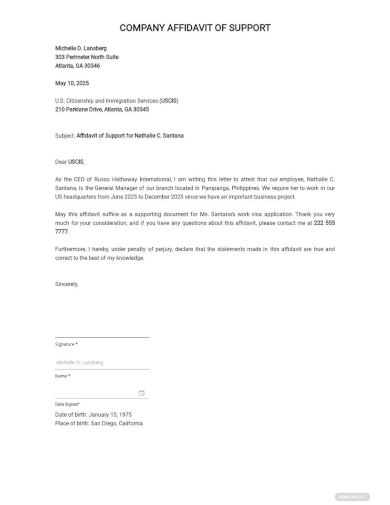
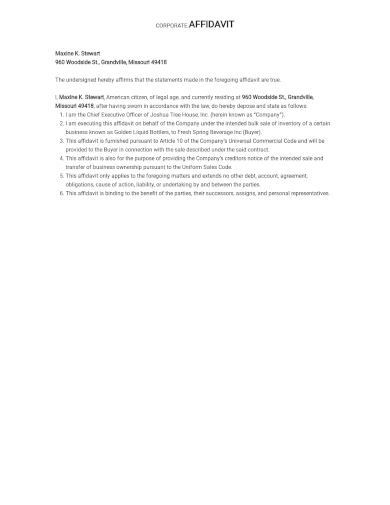
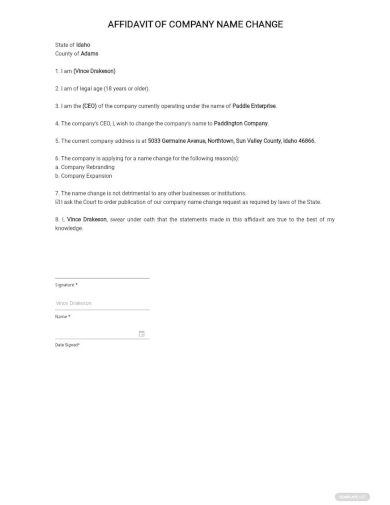
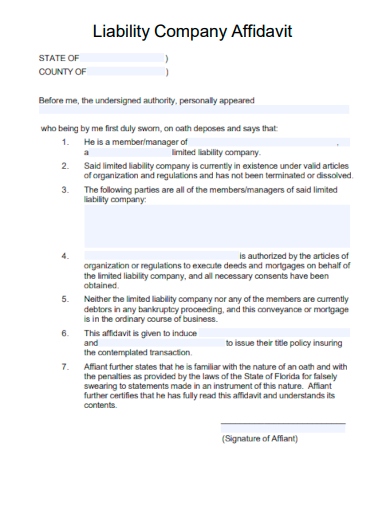
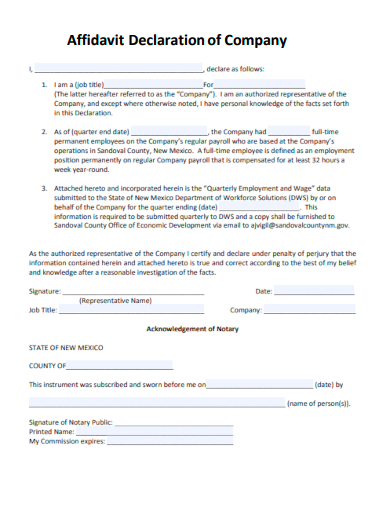
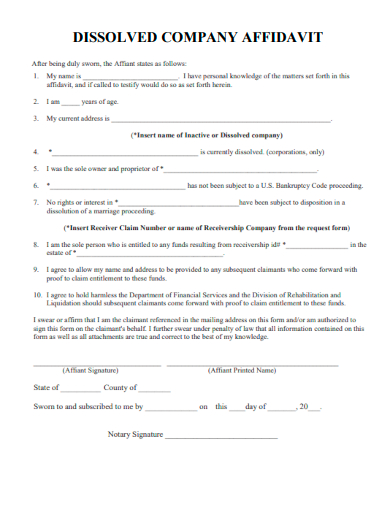
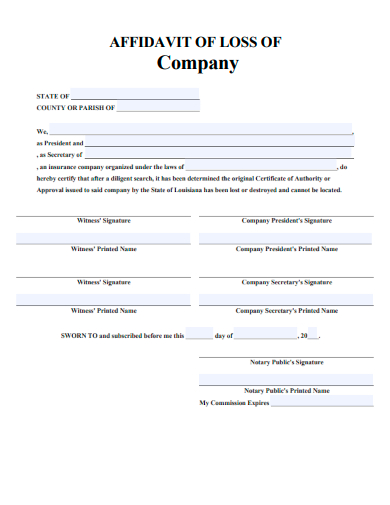
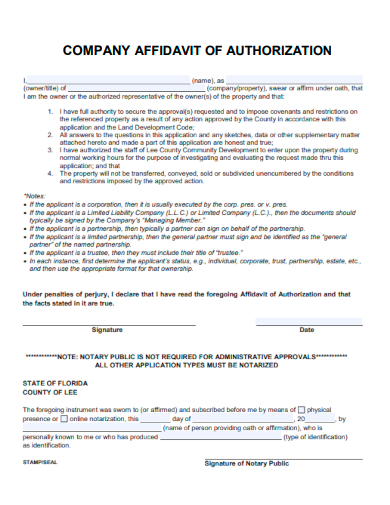
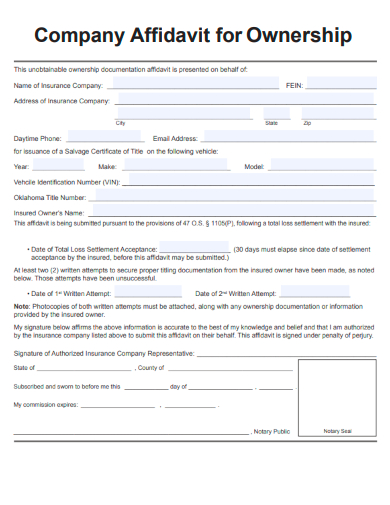
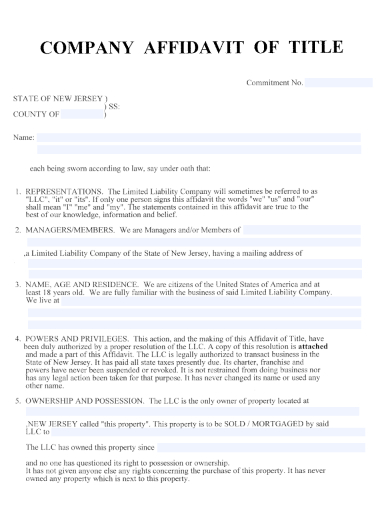
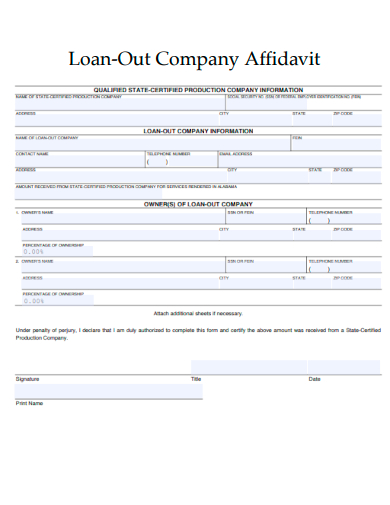
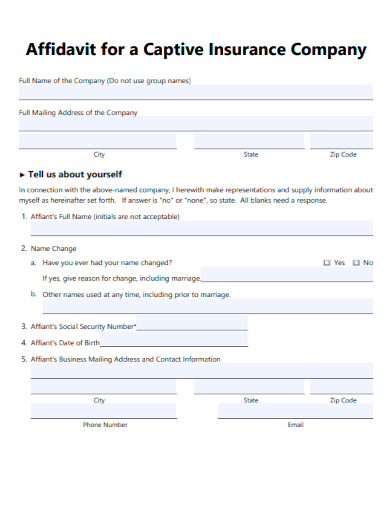
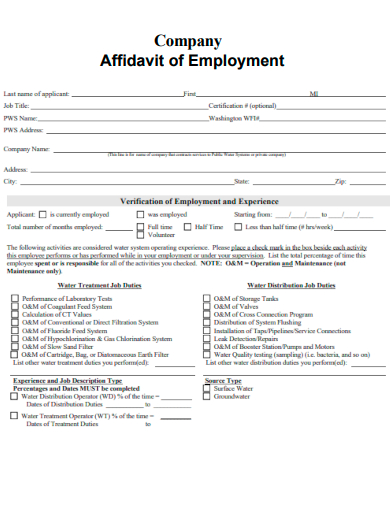
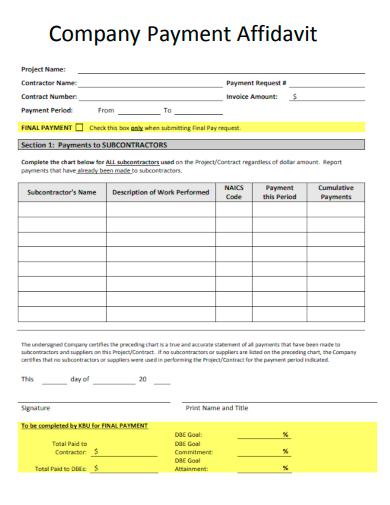
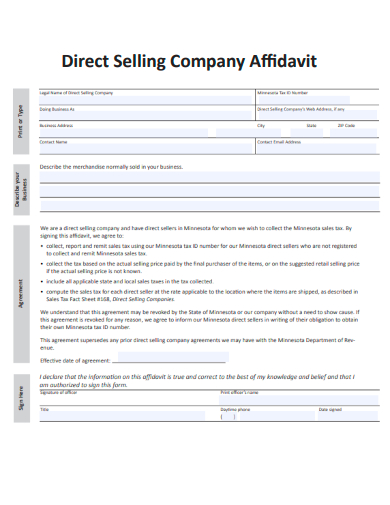
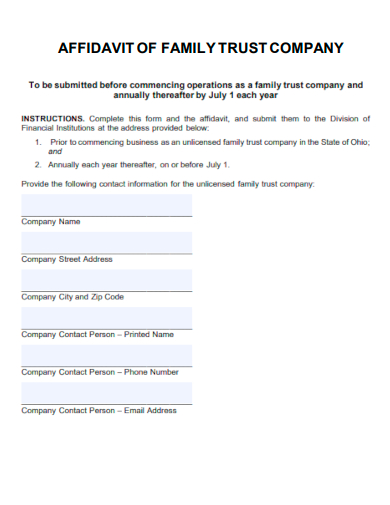
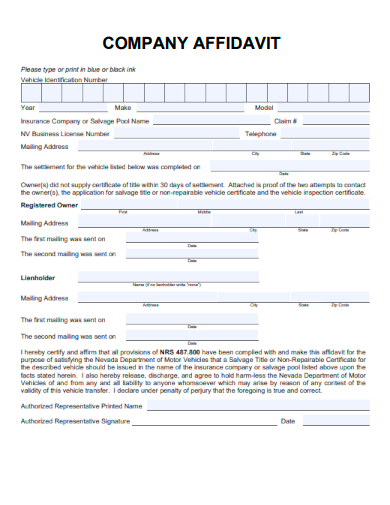
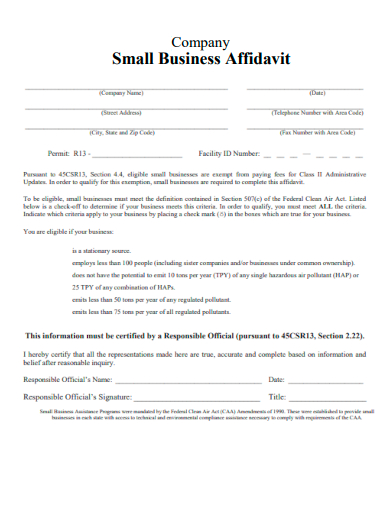
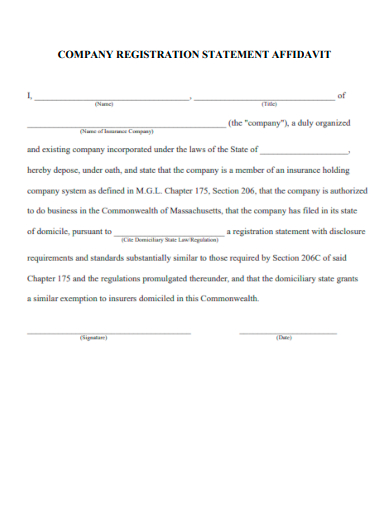
A company affidavit is a legal document that serves as a sworn statement or declaration created by a company’s representative and is commonly used for different legal and business purposes to verify the accuracy and authenticity of a particular piece of information or to deliver evidence of facts relevant to the company’s operations, finances, structure, and more. This document is signed under oath which indicates that the provided details are true and accurate to the best of the affiant’s knowledge. Entities can also use affidavits of agreement, affidavits of correction, and affidavits of undertaking.
Company affidavits commonly contain information about the company’s ownership, key personnel, financial status, assets and liabilities, intellectual property, and other ongoing legal matters. The creation of company affidavits includes several steps, from data collection conducted by the affiant to its signing which is done with the presence of a notary public. With the company affidavit, the company can establish the credibility and reliability of its claims or statements in legal or business matters.
Start the writing process by gathering relevant details as well as supporting documents that are required for the affidavit. These details can include information on the company’s ownership structure, financial status, key personnel, ongoing legal matters, assets and liabilities, and other essential information.
With the collected details and documents, create the initial draft of the company affidavit. It should be concise, clear, and organized. The document’s introduction should identify the affiant and their capacity within the company, followed by facts presented in a logical sequence.
Perform a thorough review of the initial draft to ensure that it is accurate, clear, and complete. Check if all necessary information is included and that it is free from inconsistencies and errors. You can work with legal or relevant department personnel to review the document. Once done, make necessary revisions to ensure its effectiveness.
Once the draft is finalized, make the affiant sign the document in the presence of a notary public or other authorized official who can administer oaths. This step is important to emphasize the legally binding nature of the document.
The five most commonly used types of company affidavits are financial affidavits, affidavits of ownership, affidavits of name change, affidavits of compliance, and affidavits of incorporation.
Company affidavits’ basic formatting includes a heading, introduction, statement of facts, sworn oaths, signature and notarization, and notary acknowledgment.
Company affidavits are utilized for various purposes and it is mainly for legal verification and evidence, regulatory compliance, transactions and contracts, financial transactions, name changes and corporate actions, and intellectual property protection.
A company affidavit serves as a formal declaration that enables the establishment of a company’s credibility and reliability on its claims or statements in relevance to legal and business matters. It plays an important role in serving as a verified source of information that can be used as evidence during legal proceedings or as a reference point for different business transactions.